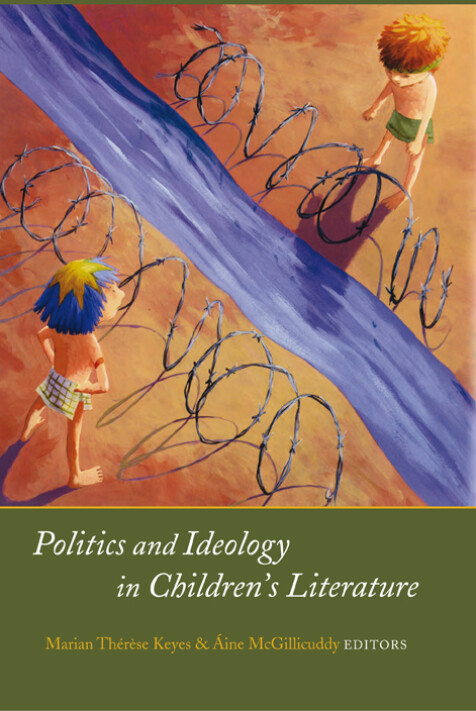Politics and ideology in children's literature
Marian Thérèse Keyes & Áine McGillicuddy editors
‘Opens up a whole range of thought-provoking perspectives on Irish children’s literature [and] offers insight into Irish research of children’s literature’, Berislav Majhut, Libri & Liberi (2016).
‘Handsome and elegant … a stimulating collection, fresh in its thinking and frequently radical in its interpretation of the many and disparate texts selected for discussion …[while] the book’s appeal will be mainly to those of an academic mindset, there are several essays here which should attract a wider audience … as with several other essays in the volume, McGillicuddy’s approach is to blend the biographical and the literary, a combination which here is handled with great skill and relevance … in Susan Shau Ming Tan’s [essay], the combination of erudite literary history and perceptive film criticism makes this an essay at once entertaining and thought-provoking. This collection is a welcome addition to the academic children’s bookshelves and will prove a valuable work of reference’, Robert Dunbar, Books Ireland (January/February 2015).
‘It is clear from the outset that the main goal of this volume is to highlight the various ways in which politics and ideology shape the construction of children’s literature … I appreciated the volume’s organization: there was a clear line of argument that held the five sections together cohesively … What impressed me were the number and variety of voices and text-types that converged. Its multicultural, global approach made it particularly unique. Various theoretical approaches were employed, enabling the reader to question the intersections between childhood, politics, ideology and texts from a range of interesting and challenging perspectives. I would recommend this text to literary scholars. With that said, the range of genres, text-types and issues covered in this volume makes it accessible and of interest to a multidisciplinary readership’, Erin Spring, Interjuli (2015).
‘[This book] is edited carefully and despite a substantial number of contributors and various subjects and methodologies, it is a consistent and well-considered whole. It shows how powerful a “tool” children’s literature is in adults’ hands as it influences young readers’ minds and future societies’, Krystyna Zabawa, International Research in Children's Literature (Winter 2015).
‘The introduction to this volume does some welcome reprising of earlier scholarship before its contributors embark on fresh analyses … There are several strong and original essays … Taken together, these essays give a sense of how children’s literature criticism has begun to re-engage with the ways in which writing for children is bound up with ideology, and some ideas about the widening nature of the discipline … book historians and those with interests in the environment and gender will also find some relevant material in the contributions’, Kimberley Reynolds, SHARP news (August 2016).
‘A wide-ranging collection of essays that expose and analyze a variety of ideological themes in literature for young people. The contributors do a nice job of addressing both modern and classic literature as they examine texts as varied as The Hunger Games, the Twilight series, the limericks of Edward Lear and Aesop’s fables … This is a worthy addition to the resources on children’s literature. Recommended’, P.J. Kurtz, Choice (July 2015).
‘Achieves its goal of exploring how children’s literature can advocate, subvert, or contest particular world views by examining the ‘implicit and explicit manifestations of ideology in children’s literature’. The authors engage with a wide range of subject matter which incorporates a variety of types of text and approaches in order to expose the politics and ideology embedded within them. … a wide-ranging and impactful test’, Shauna Wilton, Bookbird (2015).

